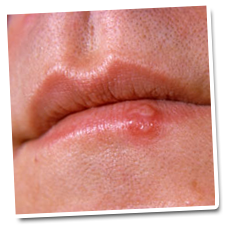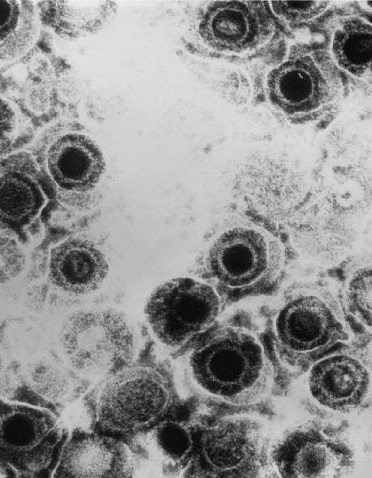Know More : The Fact About Herpes

Herpes has been discussed since ancient times. Myths about herpes have been long-lived, and make us confused which one is myth or fact and make questions invariably on your mind. The question becomes an unspoken question because it is against the same stigma that haunt herpes topic. The bad stigma of herpes is caused by the myth that people get herpes from sleeping with too many people. The fact is it only takes one unsafe exposure to contract genital herpes and having herpes doesn’t say anything about a person’s promiscuity. The important thing to understand that there are two different types of herpes that differentiated by a virus which infected.
Type 1 Herpes - HSV-1
Type 1 Herpes (HSV-1) often cause cold sores or blisters around the mouth, most often around the border of the lips. When HSV-1 shows up in the mouth area, it’s referred to as oral herpes. HSV-1 isn’t necessarily a sexually transmitted disease, but rather a disease that can be easily transmitted through skin-to-skin or mouth-to-mouth contact, especially when sores or blisters are present.
Type 2 Herpes - HSV-2

Type 2 Herpes (HSV-2) often called genital herpes. However, HSV-1 can cause genital herpes which is most commonly spread when someone who has HSV-1 on the mouth performs oral sex on his or her partner. In males, the sores occur on the glans penis, the shaft of the penis or other parts of the genital region, on the inner thigh, buttocks, or anus. In females, sores appear on or near the pubis, labia, clitoris, vulva, buttocks or anus. If you see any sores on your genitals, you better see your regular doctor in order to confirm your herpes diagnosis and treatment plan, or if you have a high risk of coming in contact with the virus should do the test. With 58% of Americans testing positive for type 1 herpes, odds are you've been exposed at some point, or even if you've never had any symptoms.
In spite of having no herpes symptoms at all, you are not free from herpes. Almost 80% of people living with herpes don’t know they have it. This is due to the viruses sometimes causing very mild or atypical symptoms during outbreaks, such as itchy rashes, but don't afraid it does go away. And some people live with herpes without any signs, itching or symptoms at all. However, as neurotropic and neuroinvasive viruses, HSV-1 and -2 persist in the body by becoming latent and hiding from the immune system in the cell bodies of neurons.
There is no cure or vaccine for herpes, but antiviral drugs can effectively manage symptoms. Studies of vulnerable patient populations have indicated that daily use of antivirals such as acyclovir and valacyclovir. These drugs do not rid the body of the herpes virus, they do help to control it, by reducing symptoms, reducing the risk of spreading herpes to your partner and even suppressing the virus to prevent outbreaks. But if the symptoms such as cold sores or blisters appear, vitamin C, lysine supplement and lemon balm are complementary treatments that may provide some relief.
source:
Wikipedia and www.stdtestexpress.com/blog

oneminuteherpescure.com, more.. Herpes cure.